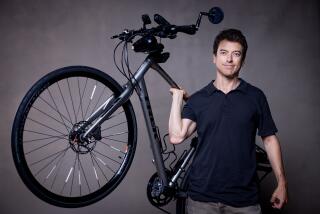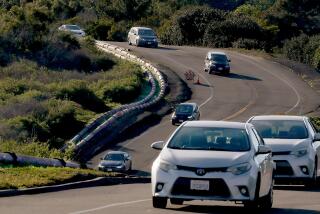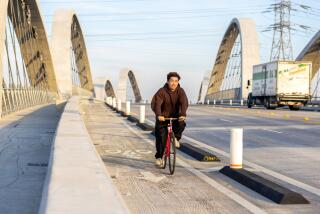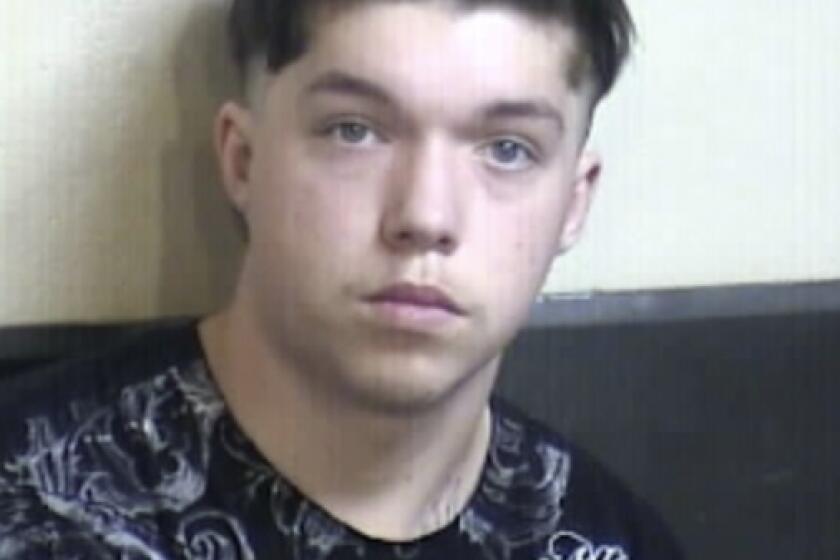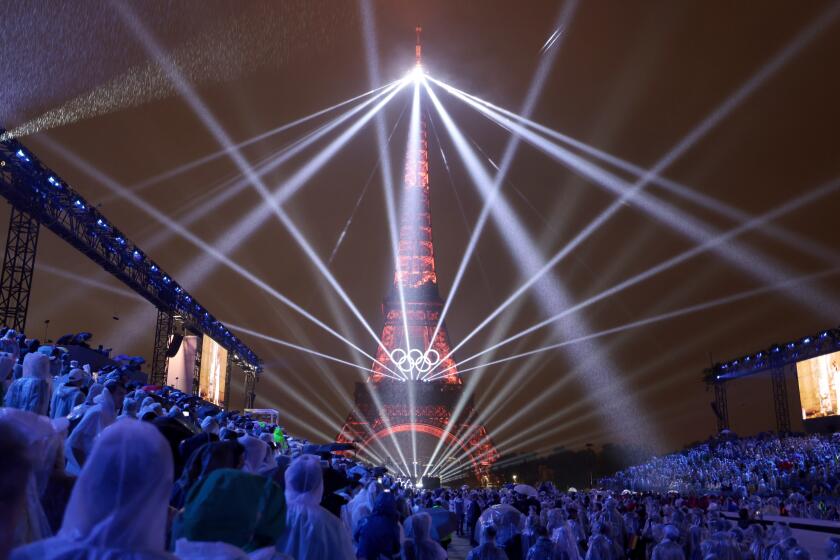Capitol Journal: Bicyclists shouldn’t get a free ride when it comes to repairing roads
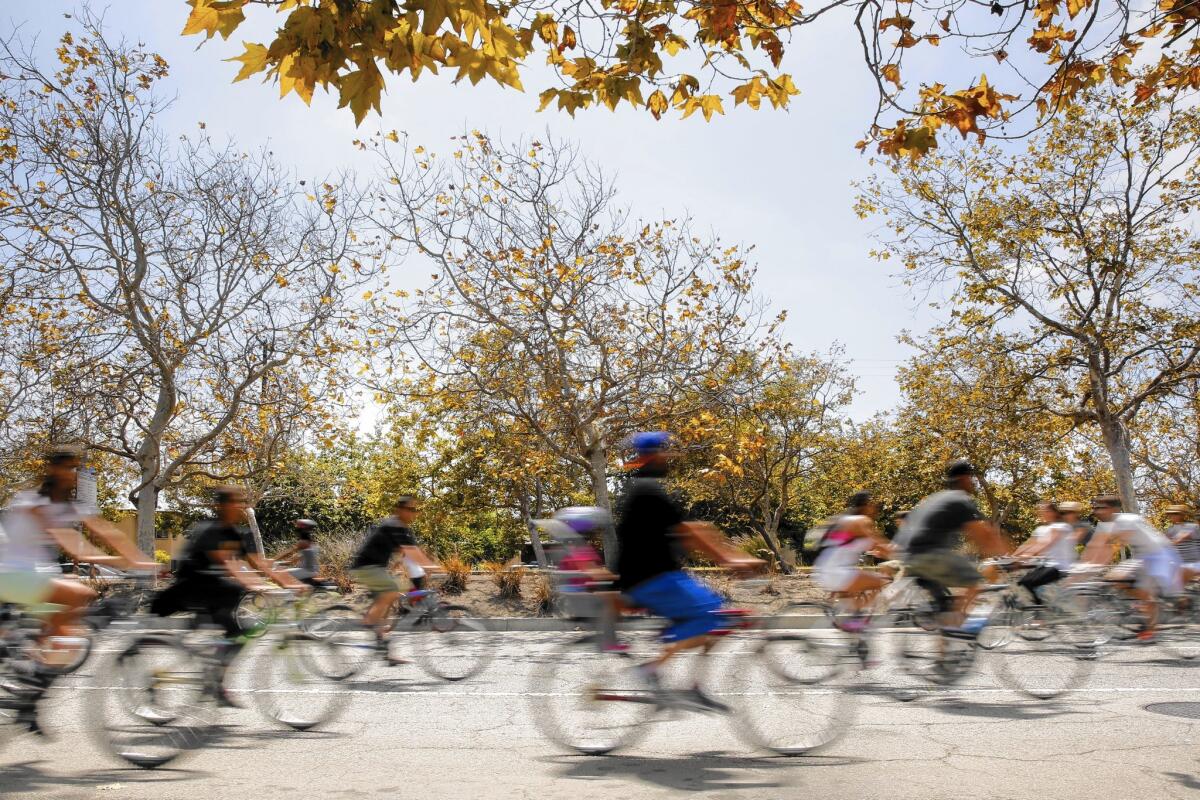
Californians take an estimated 2 million bicycle trips each day. They should start kicking in for the roads they use.
Bicycle riders have been freeloading off motorists who pay gas taxes.
Yes, they’re often one in the same. Except for kids, bike riders usually drive cars, too.
And, of course, bicycling is clean transportation and good exercise. It should be encouraged.
But if cyclists were required to pay a state registration fee to ride their bikes on public roads, there’d be more money to carve out bicycle lanes. And they could help all of us maintain and repair the roads.
Gov. Jerry Brown and legislators are gridlocked over how to raise additional money to fix California’s rapidly deteriorating highways, which are rated among the nation’s worst.
Democrats want to hike fuel taxes and registration fees. Republicans insist that Sacramento already collects enough money. Just re-prioritize it, they assert, and take dollars from other programs.
“Republicans talk as if we can change the [state] general fund to pay for transportation. We’ve had a lousy experience trying to do that,” said Jim Earp, who heads the California Alliance for Jobs, an infrastructure lobbying group. “We never win when it’s transportation versus education or the poor. We need dedicated funding for highways.”
It’s a myth that Democrats are wholesale raiding fuel taxes to pay for their pet projects such as education and healthcare.
The vast majority of fuel tax revenue — more than 98% — is spent on transportation, the state Finance Department says. Yes, it should be 100%. Using it all would boost the transportation kitty by $89 million.
Roughly $1 billion in truck-weight fees goes into the general fund to pay off highway construction bonds. That’s hardly a raid. It’s being spent on roads.
During the last two decades, $2.7 billion was borrowed from transportation accounts for general fund budget-balancing. Not good. But about two-thirds has been repaid and the rest will be in a few years.
Brown has said that $5.7 billion more is needed annually for road repairs on top of the current $2.3 billion. He has proposed raising $3.6 billion with fuel tax and registration fee increases. That money would be locked into transportation funding.
What set me off about bicycles was being tortured by about 2,000 of them Sunday at Lake Tahoe. Well, that’s not entirely correct. My daughter and I never got to Tahoe because the main state highway to Kings Beach on the north shore was closed to lake-bound traffic to make room for a 112-mile Ironman bicycle race.
There had been no warning signs on the highway — at least any that thousands of us motorists saw. Suddenly we were turned around and told to detour roughly 30 miles. But that road — the only other one to the lake — quickly became a parking lot.
Somebody really messed up — Caltrans, the CHP, local law enforcement, Ironman organizers or volunteers. A pox on them all. We turned around and drove 100 miles back to Sacramento.
Recreational biking, that’s great. But closing down a state highway — robbing lakeside restaurants and other businesses of weekend customers — that’s arrogant and self-indulgent.
“We want to encourage bicycle use,” said state Sen. Jim Beall (D-San Jose), chairman of the Senate transportation committee. “One purpose is to reduce air pollution. But if they close down a road, it just causes more congestion and pollution. At Tahoe, that pollution goes into the lake, too, and harms clarity.
“If they close the road down, they should pay for it.”
Cyclists should help pay for it regardless of whether they’re allowed to confiscate the road exclusively for a day. Earp agrees.
“A lot of them think they’re basically on the side of angels,” Earp said. “They think it’s OK just to rely on motorists for funding. I think everybody using the system ought to be paying into it.
“They feel more money should go into bike lanes. I don’t have a problem with making a road more bike-friendly. I’m a bike rider. But given the limited amount of money we have to deal with....”
He didn’t complete the sentence. I will: “They should pony up like the rest of us.”
Some cities, such as Los Angeles, Long Beach and Santa Monica, charge a token fee — maybe $3 — for a bicycle license. But the state charges nothing.
Nobody knows how many bicycles there are in California. But based on nationwide estimates, a fair guess would be nearly 20 million. If you charged $15 for an annual registration fee, even with government overhead, that should net $200 million. Use it for more bike lanes, filling potholes, stoplights, better enforcement. There are many needs.
Bike lanes are proliferating. A new law requires motorists to stay three feet away from bicycles. The riders should pitch in with their pocketbooks.
“That would be counterproductive as a society,” said Dave Snyder, executive director of the California Bicycle Coalition, a lobby group. “We don’t want to discourage bike riding. We want to encourage it.”
Moreover, he points out, a portion of the local sales tax often is used to help bicycling.
The state used to have a $7-million bicycle account. But it recently was merged with a bigger multi-purpose kitty. So it’s difficult to tell what’s being spent on bikes. Whatever the total, the money comes from motorists.
One good thing resulted from the Tahoe bike mess. Immediately afterward, the road leeches canceled next year’s race.
Twitter: @LATimesskelton
More to Read
Sign up for Essential California
The most important California stories and recommendations in your inbox every morning.
You may occasionally receive promotional content from the Los Angeles Times.
